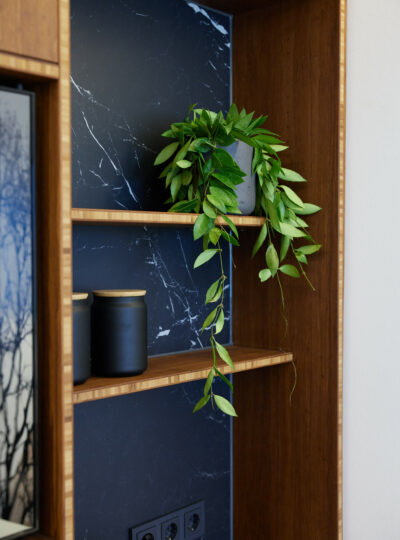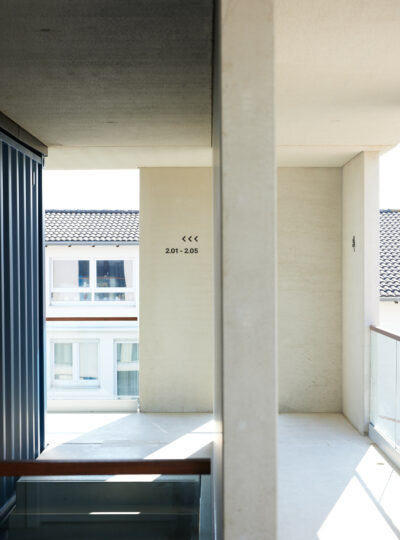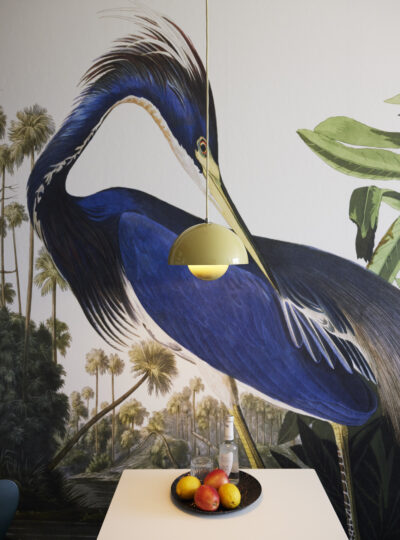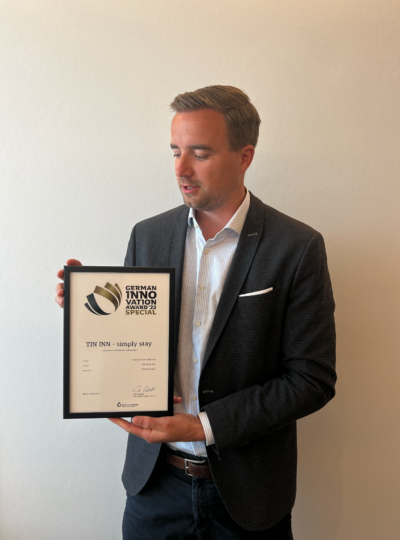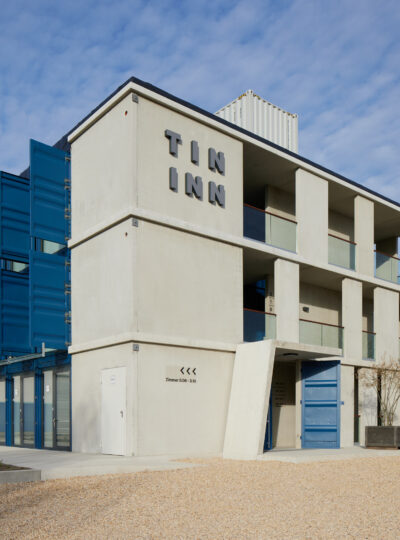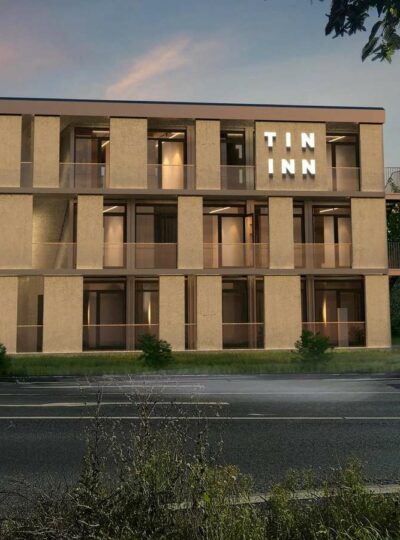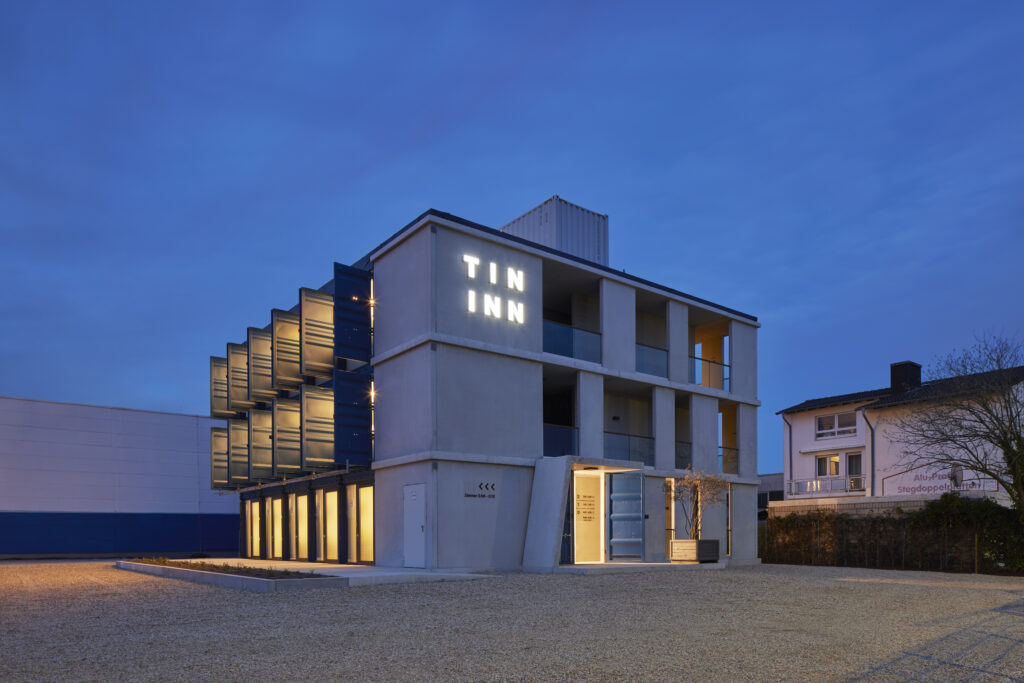
The first hotel made entirely of discarded sea containers has now opened in Erkelenz. With their extraordinary idea, the three founders of TIN INN want to meet the real need in the hotel industry. The steel hostel gets by with one hotel manager and two cleaners.
Text: Holger Berners | Photos: TIN INN GmbH Stefan Hohloch
The basic idea of Ivan MallinowsKi, Michael Haiser and Nico Sauerand is based on an innovative hotel concept that relies on sustainability and digitalization. More TIN INN brand hotels are to be built in the near future, primarily in smaller cities with 40,000 to 50,000 inhabitants and in industrial conurbations. “The idea came from real life,” he recalls of the planning phase. Together, we came up with it after searching in vain ourselves. For us, it was always very difficult in the past to accommodate business partners, colleagues or friends well.” The three “Bs” were very important in the implementation: a really good bed, a clean and spacious bathroom, and a huge screen with high-speed Wi-Fi that can also be connected to the guest’s own devices.
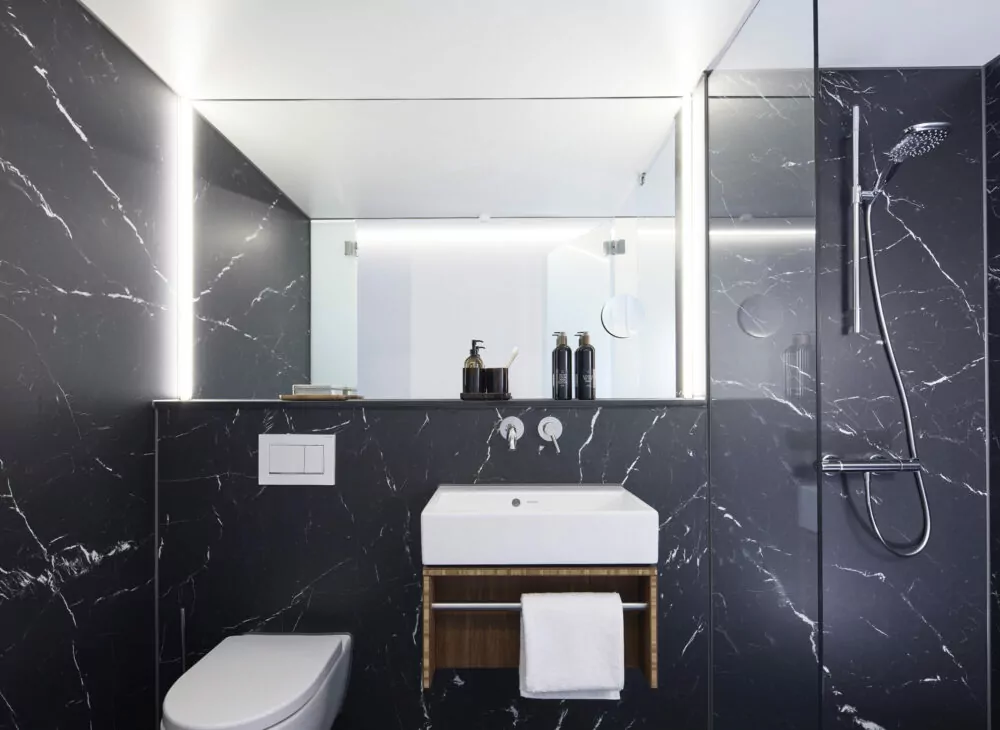
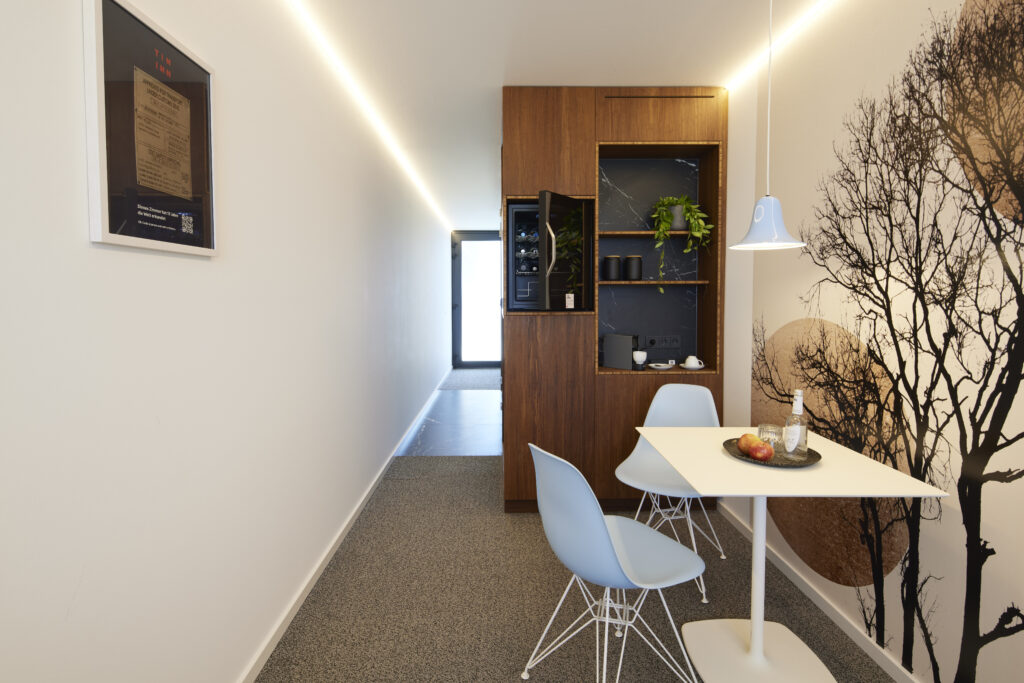
All processes are digitally controlled for the benefit of the guest.
Nico Sauerland is one of the three founders of TIN INN
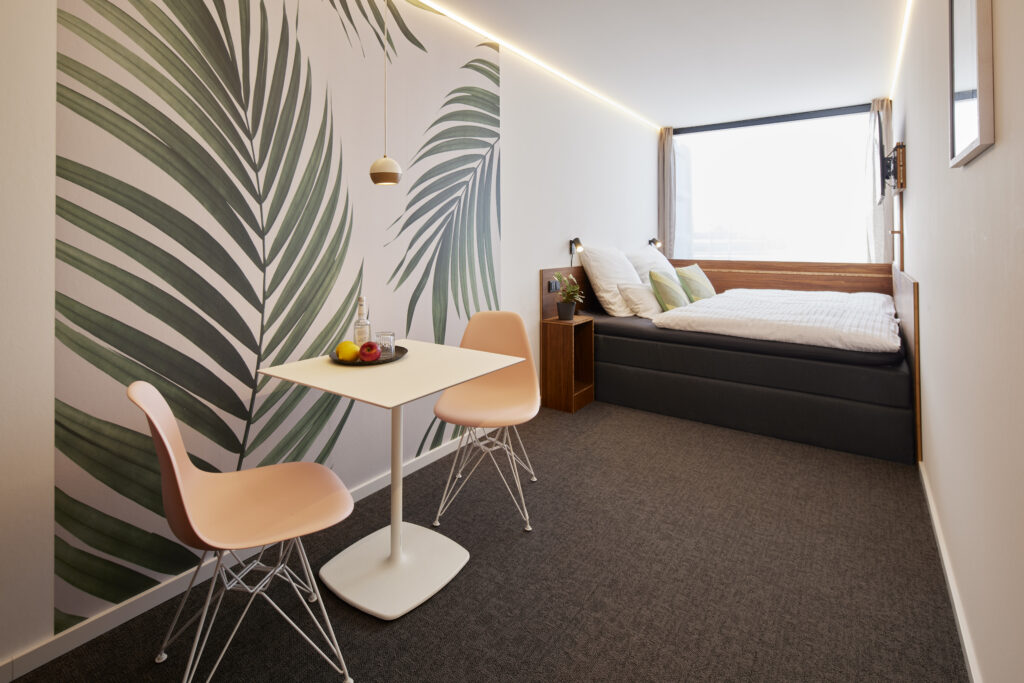
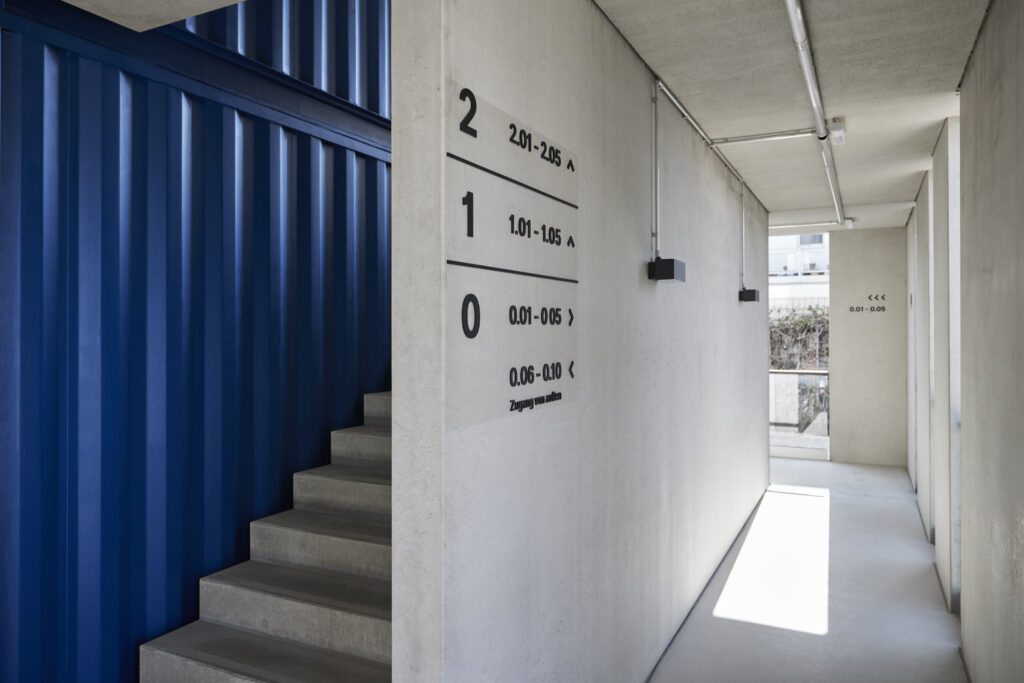
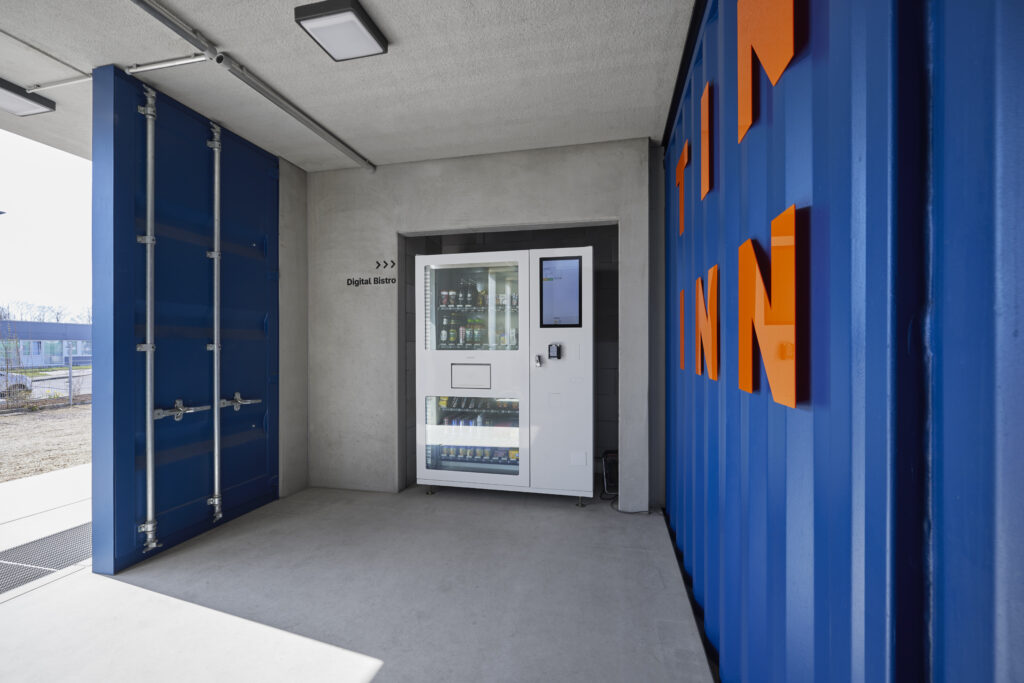

The result is an overnight accommodation option that has been designed completely digitally, making it easier for the guest to stay overnight from the very beginning. From booking to the digital room key to billing, all processes at TIN INN are controlled digitally. Thus, guests benefit from an independent and flexible stay. “For us, the topic of sustainability is a real
It’s a matter of the heart,” assures Michael Haiser. We do not want to convert or instruct with the raised forefinger. Our concern is to offer guests at least the comfort that is also standard in the conventional hotel industry.” At the same time, TIN INN eschews frills and excess, preferring to use sustainable materials and upcycling. The hotels are built and operated sustainably. Used overseas containers made of highly durable Corten steel, which have sailed around the world for decades, form the steel shell of the individual rooms. In order to provide the guests with the comfort they are accustomed to, all rooms have been finished to the highest standards. The laid carpets were woven from old fishing nets. Due to a minimal sealing of the property and an own heat pump concept, the CO2 footprint is significantly minimized. Sustainable action is also a focus in daily hotel operations,” Haiser continues, promising, “All details are consistently implemented with the environment in mind.”
The three founders are certain that the successful combination of digitization and sustainability makes their idea a contemporary and sustainable concept. TIN INN has found a niche in the hotel landscape that it says meets the current needs of travelers while being both ecologically and economically sustainable. The company’s success is also reflected in several awards and prizes.
All rooms are air-conditioned and equipped with a spacious double bed. Marble and bamboo have been used in the bathrooms, which are equipped to a high standard. The large shower is designed at ground level and open. While more and more hotels do without a minibar, the TIN INN offers it as a free service. However, guests will have to do without breakfast. A vending machine in the entrance area offers the essentials for the start of the new day. The booking of the rooms is done exclusively online, therefore there is no reception. The personnel costs are also kept within limits: In addition to hotel manager Christian Dorn, only two cleaning staff are employed to run the 20-room hotel in Erkelenz.
Construction time for a container hotel company’s own “container plant” is about three months. There is a worldwide patent on the finishing and insulation of the unbreakable sea freight containers. Three more are currently under construction. By the end of next year, eight more new openings are to be celebrated. “We deliberately took our time for the process of conceptualization and constant improvement during its creation,” explains Ivan Mallinowski. “In between, we work with selected companies and partners who take sustainability as seriously as we do.” The digital basis of the hotel is also optimized so that the guest can travel comfortably and flexibly at any time.
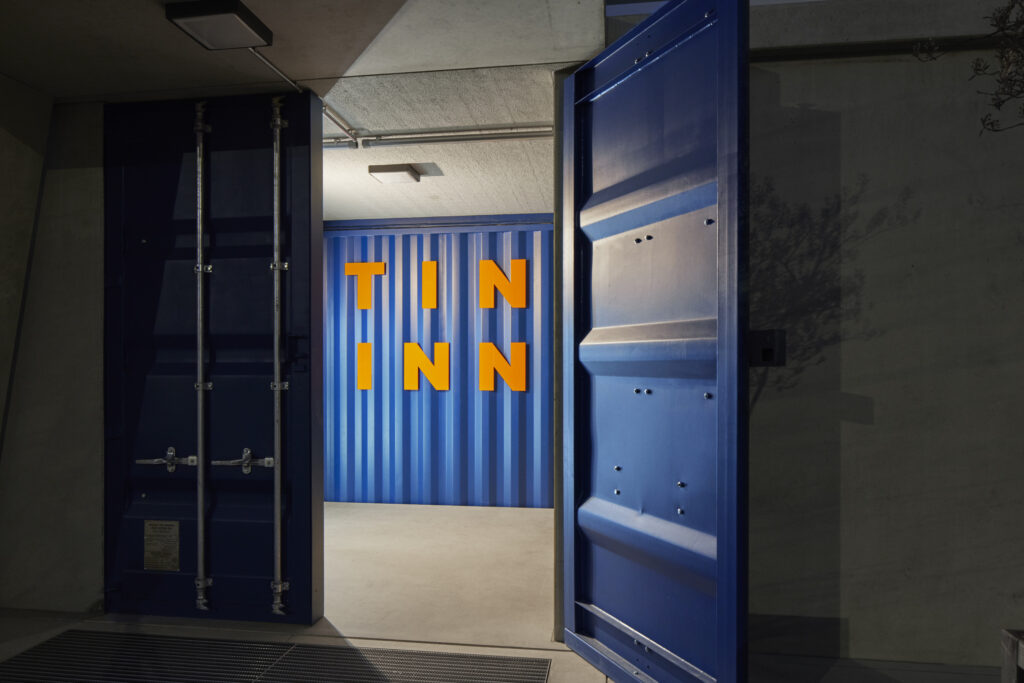
“We have reached the point where we can easily scale the result many times over. The demand in the municipalities is great and our construction process is now routine and fast.” Currently, there are inquiries from 20 cities for the container hotels. Now the three founders are going one step further and thinking about building much-needed housing for students.
In the first weeks after the reopening, the new hotel offer has been very well received by guests in Erkelenz. “We have a high occupancy rate,” says a pleased Nico Sauerland. “We welcome not only fitters, but also business travelers and cycling tourists from the Low Countries at weekends.” Depending on occupancy, an overnight stay at TIN INN Erkelenz costs between 69 and 125 euros.
